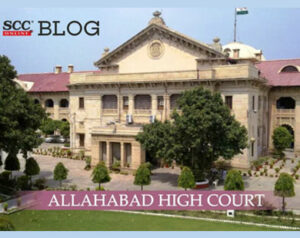Allahabad High Court: In a contempt application under Section 12 of the Contempt of Courts Act, 1971 has been filed alleging willful and deliberate disobedience of judgment passed by a division bench of this Court, the bench of Irshad Ali, J. said that the action of the respondent is not only contemptuous but is also malicious. He took care of the money of the applicant despite the clear direction of this Court and there is no justifiable reason for the said action, and it was his purposeful act to harass the applicant despite the order of the writ Court. Unnecessarily mens rea is not required to be proved in a case of contempt, but in the present case the violation is willful, deliberate and coupled with intention and motive to harass the applicant.
By means of a writ petition, the applicant assailed a notice issued by the respondent/Deputy Commissioner of Income Tax, under Section 143(2) of Income Tax Act, 1961 in respect of assessment year 2012-13, on the ground that the said notice was de hors the provisions contained under Section 124 of the Act and has been issued in excess of jurisdiction conferred upon the respondent. The Court quashed the said notice on the ground of jurisdictional error, and the opposite party was to delete all the outstanding amount from the web portal showing the dues to be paid.
The Court noted that the assessing officer despite direction issued for consequential action, permitted to continue the outstanding amount for a period of seven months on the web portal and when the Court made query in the present contempt application regarding consequential benefits granted to the applicant, only then it was deleted from the web portal. Thus, it was held that this clearly amounts violation of the judgment and order passed by the division bench of this Court on 31-03-2015.
The Court said that civil contempt is punishable with imprisonment as well as fine. In each case, the court may also penalise the party in contempt by ordering him to pay the costs of the application and a fine can also be imposed upon the contemnor.
The Court said that, if the judiciary is to perform its duties and functions effectively and remain true to the spirit with which they are sacredly entrusted with, the dignity and authority of the Courts must be respected and protected at all costs. Otherwise, the very cornerstone of our constitutional scheme will give way and with it will disappear the rule of law and the civilized life in society. Thus, it is imperative and invariable that the Court’s orders are to be followed and complied with.
The Court said that the assessing officer should have immediately deleted the entry existing on the web portal after passing of the judgment, but deliberately and intentionally the notice became operative on the web portal till seven months, which ruined the reputation of the applicant, and this act of the Income Tax authority was in deliberate and willful disobedience of the judgment.
Thus, the Court held the Deputy Commissioner of Income Tax to be guilty under Section 12 of Contempt of Courts Act, 1971. Further, in this case, only fine would not meet the ends of justice, as the respondent was a senior officer, who has committed a grossly reprehensible act and in case he is not punished, it would send down a wrong signal to other officials of IT Department that even such unbusinesslike conduct invites only a warning or fine. Therefore, a fine of Rs. 25,000/- along with simple imprisonment for a period of one week is awarded to the contemnor.
[Prashant Chandra v. Harish Gidwani Deputy Commissioner of Income Tax, 2022 SCC OnLine All 884, decided on 16-12-22] ]
Advocates who appeared in this case :
Counsel for Applicant:- Advocate Mudit Agarwal, Advocate Anand Prakash Sinha, Advocate Radhika Singh;
Counsel for Opposite Party:- Advocate Manish Mishra.
*Apoorva Goel, Editorial Assistant has reported this brief.

